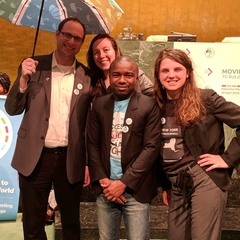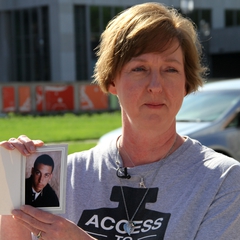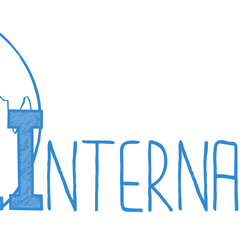T1International Testimony for Insulin Access & Affordability: The Rising Cost of Treatment
8 May 2018, 10:25 a.m. in #insulin4all USA, News & Statements by T1International
On Tuesday, May 8, 2018, the US Senate Special Committee on Aging held a hearing entitled, “Insulin Access and Affordability: The Rising Cost of Treatment.” T1International provided the following testimony.
T1International’s 2018 global survey explored out-of-pocket costs for people with type 1 diabetes. More than 25% of American respondents said that they have had to ration insulin at least once per year due to cost. Fourteen percent of those respondents have had to ration their insulin monthly, weekly, or daily due to insulin cost.
To the type 1 diabetes community, this data does not come as a shock, but it adds hard data to the countless anecdotal stories that people living with type 1 diabetes across the USA have shared. Every day we hear from patients struggling to afford the costs of their insulin, whether they are insured with high deductibles, on insurance plans with poor coverage, or uninsured.
Parents like Nicole Smith-Holt of Minnesota are now grieving because their children were forced to ration insulin:
My son, Alec Smith, passed away at home alone on June 27th 2017. He was 26 years old. How is it that in this day in age, people are dying from something that can be managed with proper education and access to the medication and supplies. The rising cost of insulin and supplies makes it very difficult for people with diabetes to follow doctor’s orders for treatment.
When my son had insurance, he was spending about $200 a month for his supplies and insulin. When he turned 26, he lost my insurance because of his age and his expenses for his diabetes were about $1300 a month. Honestly, who could afford that? My son died because he was trying to ration his insulin. From my research, I can tell you that dying from DKA is a very painful death.
My son was in the prime of his life, he had so much to look forward to. There is so much I will never get to see him do and achieve. Over the 2 short years that Alec had diabetes, I saw how the insulin cost steadily rose each year and how stressful that was for him. I saw how all the stress and fear took a toll on his health and his outlook on life. Why is it that, in America, the pharmaceutical companies set the price without justification as to why? Profits should never come before the lives of people, but they took my son’s life. – Nicole Smith-Holt, Minnesota
The system is truly broken and pharmaceutical companies, insurers, and pharmacy benefit managers must be held accountable through transparency and regulatory measures. T1International believes that the three insulin manufacturers who dominate more than 90% of the global insulin market – Eli Lilly, Novo Nordisk, and Sanofi – must be addressed first because they are at the top of the chain. They ultimately set the price, which hits the uninsured, the most vulnerable in society, the hardest.
The companies often tout their assistance programs as a solution to unaffordable insulin. It is incredibly difficult to qualify for these programs and some require technology that the poorest cannot access. At most only 10% of people in need will actually benefit from Lilly’s newest program, for example. That estimate is coming from the company itself.
Many patients with type 1 diabetes, like Angela, AnaElena, and Karyn, have confirmed that they were not able to get help from pharmaceutical assistance programs:
When I went through my first lay-off as an airline employee with type 1 diabetes, I realized quickly that I was going to be forced to pay expensive insurance payments to continue the good coverage I had at the time of the lay-off so that I could afford my insulin and supplies. I applied for every assistance program recommended to me through my physician and the local Health Department. I was denied access to all of those programs because they used my income until that point as a reason to cite that I could not benefit from the programs.
One of the phrases that I heard in 2001, and continue to hear from those with diabetes who can’t afford their insulin, is “Go to the ER when you run out of insulin and your blood sugar is high because only then can you not be refused treatment”. Having to wait until we are near death to receive treatment is simply not American to me. – Angela Lautner, Kentucky
After two years without insurance, I bought a plane ticket and a week’s hotel stay for the cost of a month of insulin in the USA. When I went to the pharmacy there to buy Humalog I was shocked to find that a month’s supply only cost $20. I bought as much as they would allow, and it lasted a year. Some of it expired, but I used it anyway. Desperate people do desperate things.
People will claim that it is not that difficult or serious, and that there is "always help". I can tell you with 100% certainty that this is not true. Do people want to help? Sure, but so much depends on where you live and what is available. Can you find a band-aid solution? Maybe. For me, finding help for one of the most expensive chronic illnesses in America was like finding a needle in a haystack. I can assure you that I have checked every program, I have spoken to advocates, called my politicians, written them…and in six years have not gotten anywhere. – AnaElena Djafari, Texas
There are days that I ration my insulin, because I just cannot afford the high price tag. I have used expired insulin. My blood sugars seem to be perpetually in the upper 200s to 300s, if not worse. My insurance premiums and deductibles are staggering. Middle class people fall into a hole of not qualifying for any assistance programs, but still don’t have enough money to buy life-saving medications. Most doctors won’t take my insurance, leaving me without proper guidance and care.
I’m a hard working individual with a reasonably decent job, which at one time was called the “American Dream”. The American Dream no longer exists, especially for those with chronic illnesses like diabetes. Our dream is to make it above middle age, to keep our vision, and to not feel like we’ve been hit by a train every day due to excessively high blood sugar levels.
My dream no longer consists of owning a home, having children or growing old. Having access to diabetic supplies and insulin, to feel okay when I wake up in the morning – that is my dream. – Karyn Wofford, Georgia
On average, Americans spend more on insulin than any other country. Even with insurance, many are spending around half their after tax income on insulin and other supplies they need to stay alive. “Insurance helps but it is 9k a year for a 30k year salary,” one patient told us.
The pharmaceutical companies and PBMs are getting away with all of this because they can. The opacity of the USA healthcare system needs to be uncovered and brought to light. If the insulin manufacturers say that the PBMs and insurers are to blame, they should have no problem sharing basic information about their products. T1International will continue to demanded answers to two simple questions, which will provide essential transparency:
- How much does it cost Lilly to manufacture a vial of Humalog?
- What are Lilly's profits on each vial?
These questions represent the foundation of the injustice so we will pose them again and again, until they are answered.
Our Recommendations
We request state and federal legislation to require insulin manufacturers to disclose manufacturing costs, profits, expenditures for marketing, and funding provided to patient advocacy organizations. Bi-partisan legislation like that passed in Nevada and California is the first step to addressing this extortionate pricing on the state-level.
We recommend that all legislators support national efforts to allow Medicare and Medicaid to negotiate pharmaceutical prices. Medicaid is financed by our tax dollars and states have an obligation to spend that money responsibly. The purchasing power of both Medicare and Medicaid will pressure insulin manufacturers to decrease prices.









